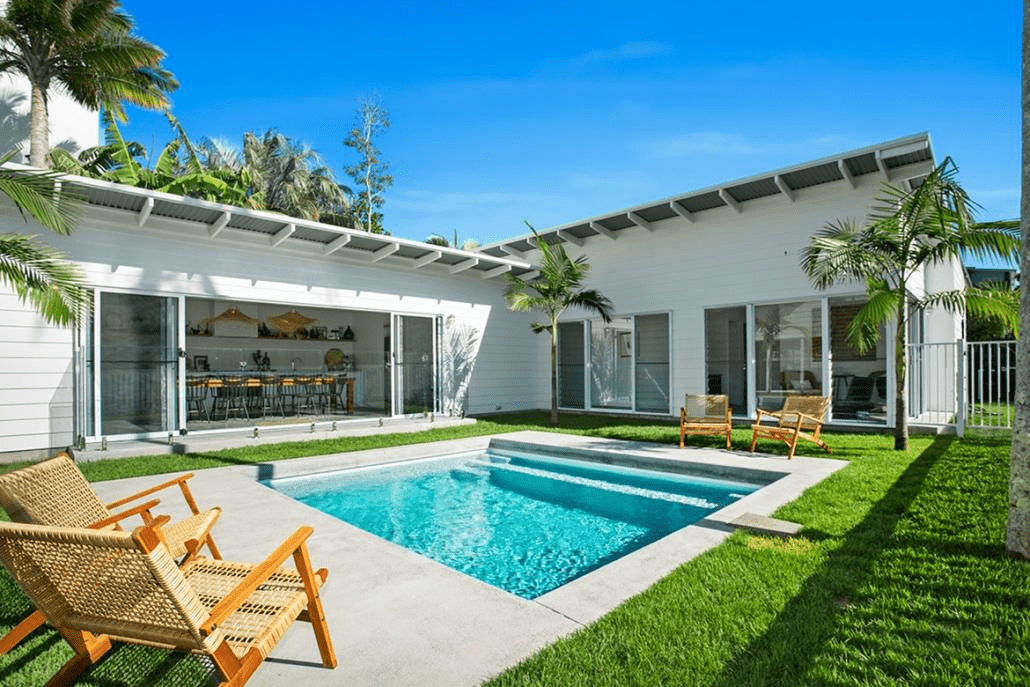Buying Your First Investment Property: Golden Tips for Beginners

Buying an investment property is a popular wealth generation strategy in Australia and it’s easy to understand why : the majority of people consider it as an extremely safe asset with strong potential for capital growth. When done right, an investment portfolio provides a gateway to financial freedom and flexibility.
Purchasing your first investment property can be slightly daunting and stressful as there are so many traps to wary of, and you don’t want to choose the property with poor return.
Here you’ll get enough information on how to make first initial steps in your investment journey and get your loan approved.
Is an Investment Property Right for You?
The potential tax benefits and the possibility of creating substantial wealth make real estate an attractive investment option for many Australians.
Whether you want to buy and hold land for future development, flip a property, purchase a property to live in and enjoy the appreciation when it sells, or create a passive income stream by collecting the rent, buying an investment property is a great way to get started on your investment journey or diversify your portfolio if you are already investing.

However, you have to consider additional expenses such as mortgage, operating costs of owning an investment property (i.e. body corporate, property management fees, rates, small maintenance), and risk of having bad tenants who don’t pay rent on time.
Your decision to invest in property should depend upon whether the main benefits of property investment are aligned to your both financial goals and personal situation.
Here are some benefits why investing in property is attractive to many Australians:
- Capital Growth:
One of the reasons why Aussies love investing in property is how its value continuously appreciates over time — but it requires you to hold onto the property over a longer period of time. It’s the money you as an investor has earned without lifting a finger — and that’s always appealing.
As an example, we have already seen the housing values rise of 30% in Queensland, New South Wales and Tasmania over the only one calendar 2020 year.
2. Rental & Investment Yield:
Rental yield is the percentage of how much you earn from rental income minus the expenses you incur owning the property. And, investment yield is the amount of rental income earned per year divided by the total loan deposit.
These two factors determine the investment property’s value, potential and long-term success. Investors collect rents from tenants which helps them to earn passive income or pay monthly loan repayments.
3. Tax Benefits:
Owning an investment property offers some major tax benefits such as deductions for depreciation and negative gearing, claim expenses incurred while owning and managing the property, exemption from paying tax on the capital gains when selling the property, and some more.
Minimising your tax through multiple ways can help you increase your return on property investment.
4. Ease of Borrowing:
It is far easier to borrow for property investment than for any other asset or commercial project:
- An investment home loan is a standard type of home loan for all lenders and you can finance a new purchase by using existing equity or having a minimum deposit.
- When you purchase an investment property the borrowing capacity is higher as you can add rental income to your current wage. That means you can borrow potentially more money as property generates passive income itself.
Looking to purchase your first investment property?. Schedule a call with us and our lending experts are ready to help you explore suitable loan products with better terms and sharp rates.
Things to Consider Before Investing in Property
Here are some key things you should consider to make your property investment a successful endeavor:
- Your Investment Goal
It’s best to figure out what your investment focus is and the financial goals you are trying to achieve prior to investing in a property. You can aim for building long-term assets that can help you generate personal wealth or save for retirement. Have an idea of how you are going to handle risks during the non-occupancy or non-payment period.
2. Property Type
This relates to property options you can invest in such as an independent home, a townhouse, a unit, or a block of land. Each property type has its unique set of benefits and challenges. If you are planning to buy a rundown property, the condition of the property will also be a huge factor. Make sure you are aware of how much budget you are willing to spend to do renovations and improve its attractiveness to attract good tenants.
The location of your investment property will also define how much of a risk factor you may have to incur and what kind of return of investment you can expect.
3. How Much You Can Borrow
It’s essential to work out how much are lenders/banks actually willing to lend you based on your current income position. There are multiple factors that determine your borrowing capacity such as your monthly income, accessible equity on your existing home, your savings, rental income, current loan repayments if there are any, etc.
Use our Borrowing power calculator to determine how much you can borrow based on your specific financial situation.
4. Costs Involved
There are some costs involved other than the purchase price when you invest in property such as stamp duty, valuation fees, loan fees, legal and conveyancing fees, transfer fees, and lender mortgage insurance (LMI). Other than that, you’ll have to pay ongoing costs such as maintenance costs, insurance, agent fees, and home loan repayments.

How to Qualify for the Property Loan?
The process of getting a loan for your investment property is similar to obtaining a home loan for owner occupied property. It is always a good idea to check your monthly repayments and interest rates first by using Repayment calculator, and then you can get a home loan preapproval to participate in Auctions and bid with confidence.
Here are a few ways you can get your loan approved and begin your investment journey.
- Saving the Deposit
Getting approved for an investment property loan requires you to come up with a deposit. You’ll need to have a deposit of at least 20% of the property’s value as it makes you a lower risk borrower and get your loan approved faster.
If you can’t come up with a 20% deposit, then you likely have to pay Lenders Mortgage Insurance (LMI). Use our LMI calculator to determine how much lender mortgage insurance you may have to pay when investing in a property.
2. Using Equity of Your Home as a Deposit
Another way to get qualified for an investment property loan is to use built-up equity on your existing home where you currently live. You can utilize your existing equity as a deposit and security to borrow money for purchasing an investment property.
Use our Equity calculator to determine how much equity you have built up in your existing home.
3. Get a Pre-Approval
Before searching for any kind of property, it’s best to have your financing sorted out. That’s why it’s wise to get a pre-approval for a home loan so you can have the ability to jump on a good deal at a moment’s notice. Additionally, knowing how much you can afford will help you narrow down your search when selecting an investment property.
Here at NG Loans, our professional team is ready to help you get a loan pre-approval at better terms and sharp interest rates. Talk to us today and get free consultation with our mortgage experts.



